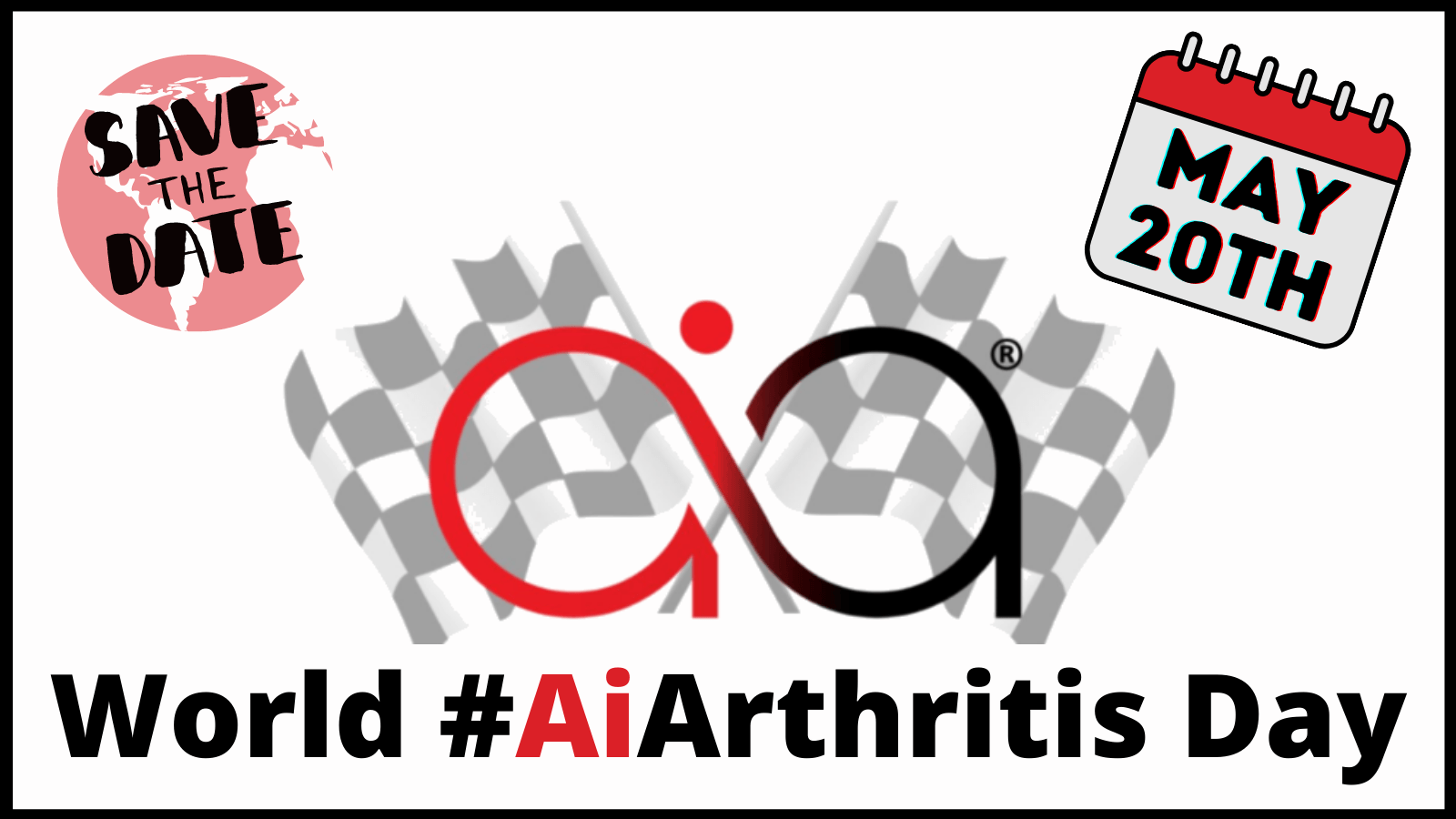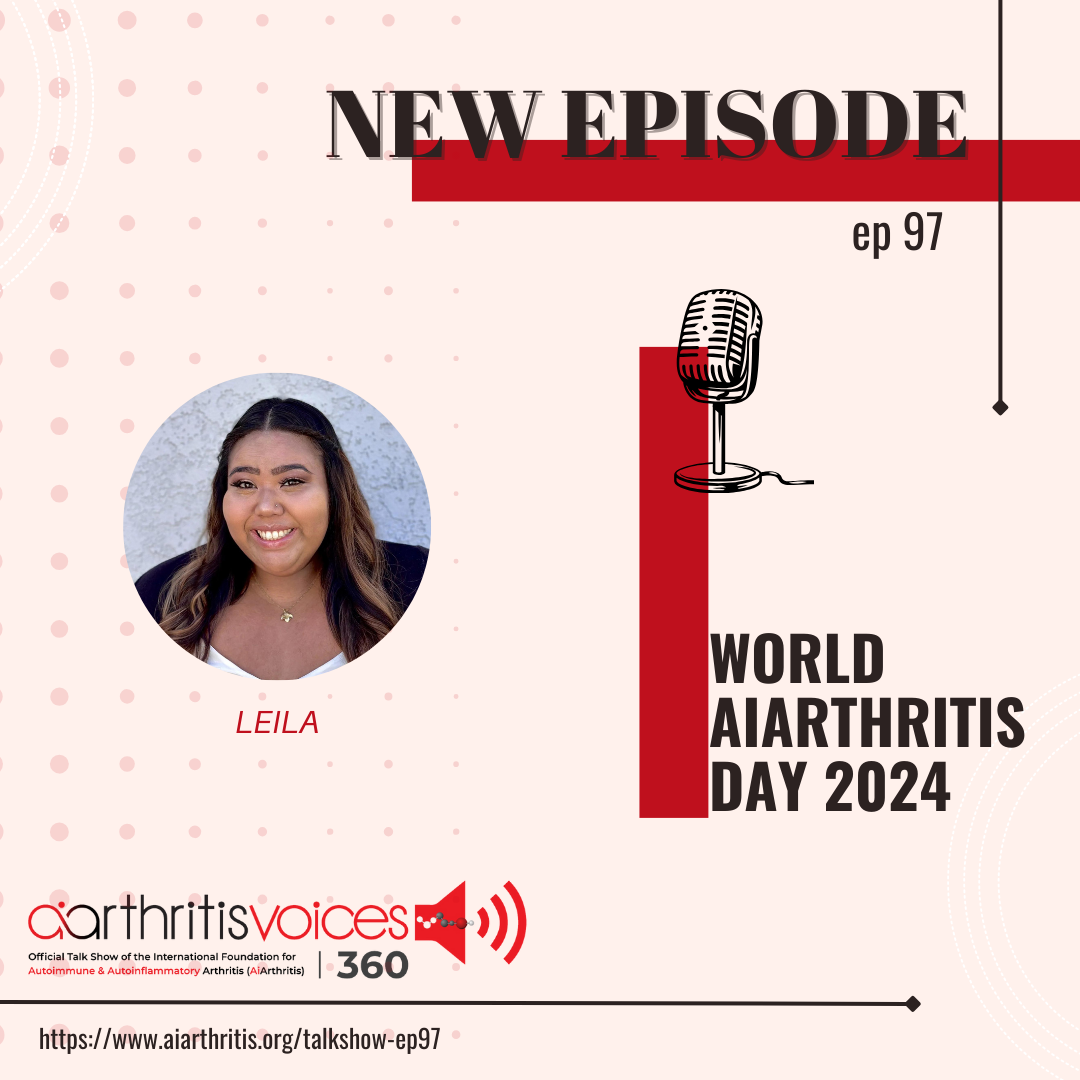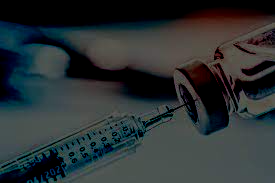World AiArthritis Day
AiArthritis Voices 360, Episode 97
Air Date: May 5 , 2024
This episode is a Step2, as outlined in our 6 Step Patient-Led Problem Solving Process.
In this episode, Leila shares the exciting plans for the upcoming World AiArthritis Day on May 20th with AiArthritis. Delve into why raising awareness for AiArthritis diseases is crucial and discover ways you can actively participate on the global initiative. Through flashback segments, our co-hosts dissect the layers surrounding the term "arthritis," unraveling misunderstandings, family judgments, and the complexities of distinguishing AiArthritis from other conditions. Tune in for insightful discussions on diagnosis delays, access to treatments, fostering better health outcomes and how you can be a part of World AiArthritis Day!
Episode Highlights:
- AiArthritis plans for World AiArthritis Day on May 20th
- How listeners can actively engage in the global initiative
- Common Misunderstandings of Arthritis
- Significance of raising awareness for AiArthritis diseases and the complexities of distinguishing AiArthritis from other conditions.
- Patient insights into diagnosis delays and the effects on treatment plans.
AiArthritis Voices 360 is produced by the International Foundation for Autoimmune and Autoinflammatory Arthritis. Visit us on the web at
www.aiarthritis.org/talkshow. Find us on Twitter, Instagram, TikTok, or Facebook (@IFAiArthritis) or email us (podcast@aiarthritis.org). Be sure to check out our top-rated show on
Feedspot!
-
Expand to View the Podcast Transcript
[00:00:00] Intro: Welcome to AiArthritis Voices 360, the podcast solving
today's most pressing issues in the AiArthritis community. We invite you
all to the table where together we face the daily challenges of
autoimmune and autoinflammatory arthritis. Join our fellow patient co-
hosts as they lead discussions in the patient community, as well as
consult with stakeholders worldwide to solve the problems that matter
most, whether you are a loved one, a professional working in the field, or
a person diagnosed with an AiArthritis disease, this podcast is for you.
So pull up a chair and take a seat at the table.
[00:00:45] Leila: Hello everybody and welcome to AiArthritis Voices 360.
This is the official talk show for the International Foundation for
Autoimmune and Autoinflammatory Arthritis, or AiArthritis for short,
which is My name is Leila P. L. Valete and I am the health education
manager here at the organization and person living with lupus and
Sjogren's disease. And I am so excited to talk to you today about World
Autoimmune and Autoinflammatory Arthritis Day, which is on May 20th.
And so I'm going to be talking to you today about all of our plans that we
have for this year, as well as we will be having some flashback clips
talking about awareness why we have World AiArthritis Day and why it's
so important to drive awareness for these diseases. So I really hope that
you enjoy and that you are excited for all of the activities that we have
planned. And yeah, all righty. So basically the first thing that I'll be talking
about is the plans that we have for social media.
So World AiArthritis Day started as a movement on social media. And so
social media always remains a big part of what we do for each day. So
we have a few different things going on on social media to celebrate the
day and help bring awareness. Just as a preface world AiArthritis Day is
on May 20th, but as it passes through all of the different time zones in
the world.
So it actually starts on May 19th at 6 a. m. Eastern Time and ends on
May 21st at 5 a. m. Eastern. And so it's a straight 47 hours of bringing
awareness and that's where the majority of the social media part of the
event will happen. And so we have one, our auto plus inflammatory
arthritis equals X campaign, which is pretty much a way to help expedite
early diagnosis, early detection, and early treatment for AiArthritis
diseases.
And so basically we want to show that auto symptoms plus inflammatory
arthritis symptoms equals all of our different diseases. So we have a poster campaign. We also have graphics that you can post on Instagram or other social medias. And we also have three different video trends
that we're going to be getting people to do examples of and basically
helping to tell their story.
So the poster campaign I actually have posters here. If you're on the
YouTube version, you can see one of my posters, and you take a picture
with holding up the posters that have to do with your specific symptoms
of your AiArthritis disease. You can also do that on the graphics posts
for Instagram if you don't want to hold the poster and just want to post it
post the information on your Instagram or other social medias, then you
can do that. And we also have three different video trends that we are
relating to AiArthritis diseases. So the first one is the put a finger down
challenge. So where you would say, put a finger down if you have
experienced such and such.
And so basically trying to pull experiences that unite all the different
AiArthritis diseases or the people having those diseases and having
common experiences. And so the second trend is going to be the, I have
an AiArthritis disease, of course, which is just another vehicle to be able
to bring awareness to the different experiences that we all have in our
day to day lives.
So, I would say, I have an AiArthritis disease, of course I have to go to
the specialist every three months and get my blood drawn every three
months. Things like that, which are basic things that we have to do as
patients with chronic illnesses, but people may not know that that's how
often we have to go and things like that.
The last video trend is going to be basically a pointing trend. So you
would point to your left side, point to your right side, and those are going
to show up as your auto symptoms and your inflammatory arthritis
symptoms. So yeah, those are the three different videos that we have
and all of the different components of our auto plus inflammatory arthritis
equals X campaign.
You can find all the different information on our website and we will have
the link here in the description and also on any of the different sites that
you're going to be listening to this. So we will make sure to have the all
the links for all of the information that I'm giving here for you to be able to
participate.
So yes, that is our first thing that we will be having for social media. We
also have patient org participation where we have a race car. I, I don't
know if I mentioned this earlier, but World's Autoimmune and Auto
Inflammatory Arthritis Day has an auto theme as in cars, raceways, the
under the hood, all the different things we use, basically a car or an
automobile to compare our diseases and our body to diseases. So, you
know, a car may look completely fine on the outside on the body, but
once you take a look under the hood, you could have a completely not
working engine. You can have all these different things wrong with your
vehicle.
So that's kind of an example or a metaphor for invisible diseases. So
yeah, we focus a lot on the auto theme as if you're on the video version,
you can see that my zoom background is actually a raceway. So yeah,
we use the auto theme just to kind of catch attention and to use it to get
the point across of basically what invisible disease is, what AiArthritis
diseases are, and what the difference between osteoarthritis and
AiArthritis diseases are.
So those are the main points that we try to get through for this
awareness day. But yeah, so we have patient organizations who are
participating. We provide them with a car and we put them them all on a
poster in order for us to show the different patient organizations that
represent the different diseases that have participated.
But we also have a social media kit with different graphics and
awareness posts and captions that we provide to those patient
organizations to be able to post on their own social medias for the day of
awareness. So those are the different social media components that we
have. And the next thing that we have going on is our race a thon.
So this is going to be our second annual race a thon. And a race a thon
is basically our auto theme combined with a traditional telethon, if you
ever remember seeing those on TV back in the day. Basically with the
telethon, there will be a TV show that has a different, has different
events going on.
And you, there's a number on the screen and you call the number to
donate so that is kind of what the race a thon is doing. We're promoting
awareness and education about our diseases, but as well, we are using
it as a fundraiser for AiArthritis, but also the other participating patient
organizations for them to also be able to raise funds for their own efforts.
Basically on the race a thon, we will have different segments that may
show what everyday life is like for people with our diseases. There may
be different resources that are shared during that race a thon for people
to be able to increase their quality of life having our diseases. There is
going to be information about exercise, self care, and all of those
amazing topics that can be covered for all the different AiArthritis
diseases.
And as well, with the race a thon will come a resource library that we get
basically up to three resources from our participating patient
organizations, and we are going to share them with the general public to
be able to have a resource library for all of the different resources from
the participating organizations.
So we are so excited to spread the wealth, share the knowledge, and
provide the arthritis community and those outside of the arthritis
community or may not know that they are a part of the community yet
with all of the amazing different resources that these patient
organizations have worked so hard on.
So we are excited to share all of the resources as well. And last but not
least, we have our fundraiser that we are holding. And our fundraiser is
going to be held on the website called Give Butter. And Give Butter is
basically a very user friendly, easy to use easy way for you to be able to
donate.
We have text to donate, we have a QR code that you'll be able to donate
with, we also have a page for you to go and click on. You can read what
World Autoimmune, Autoinflammatory Arthritis Day is all about, what the
race a thon is about, what we will be using the money for, and yeah all of
those amazing things.
What's also very cool is that there is a team aspect. So we have different
AiArthritis staff members and volunteers that have their own page that
tell their own story of why they are connected to AiArthritis and why they
would love to raise awareness for these diseases. So, I mean, it adds
that personal aspect to be able to support the volunteers and the staff
members who are trying to raise money for this amazing organization.
So yes, I am so excited for you all to see all of the different Give Butter
pages. And it's going to be an amazing way to just spread awareness
still, but also be able to raise money for our organization. So we are very excited about that. And again, I just wanted to emphasize that this is for
our organization's fundraiser, but there will be other patient organizations
that are raising funds and that you can also donate to.
So, that's also something to keep in mind. So yes, The best way for you
to see what we're up to leading up to race day would be to follow our
World AiArthritis Day social media on Facebook and Twitter. It's going to
be @AiArthritisDay and on Instagram it's going to be
@WorldAiArthritisDay and I will make sure again to have all of those
links in the description as well as the GiveButter link for our fundraiser.
And I did forget to mention what time and what date our race a thon is
going to happen on. So our race a thon is going to be on Sunday, May
19th, and that's going to be starting at 11 o'clock eastern time, and then
it's going to end eight hours after that. I believe that's 7 yeah, 7 o'clock
Eastern time. So it's going to go from 11 to 7 Eastern time on May 19th.
We will have that live stream video ready for playback by the next day so
that we can also replay it on May 20th, the actual day in the United
States for World AiArthritis Day. And yes, so that's going to be held on
Facebook, on our Facebook page, Facebook.com/AiArthritisDay. So I
really hope that you will tune in and check out what all of the different
resources and segments that we have on that live stream. So that is
what we have for World AiArthritis Day 2024. You are still going to be
hearing after this a few more clips about the importance of raising
awareness for AiArthritis diseases and why we have this day.
So thank you so much again. And yeah, stay tuned for the clips.
[00:12:35] Tiffany: Oh yeah, you heard it. It's revving some engines
because we are going to talk about World Autoimmune and
Autoinflammatory Arthritis Day, World AiArthritis Day for short. And that
is an annual event that happens on May 20th every year, was
established by International Foundation for Autoimmune and
Autoinflammatory Arthritis in 2012.
And historically, we have hosted this event online, it reaches about 60
countries around the world. And we usually have about three to four
dozen non profits are non profit awareness teams that sign up to help us
along the way because together we are stronger, right? Right. So, this
year is going to be a little bit different and that's why we wanted to take
this opportunity to share this with you all because we know that you care about this cause and wanted to learn more about how you could get involved.
So as we said, the event is historically conducted online. We have social
media pages on Facebook, Twitter, and Instagram, which are at
AiArthritis Day. You can make sure that you like those so that you're all
ready. During that time, we focus on awareness and education to help
the public and some practitioners, like maybe primary care physicians,
hospitals, nurses.
We try to teach people more about our diseases and in particular, the
type of arthritis, the autoimmune type of arthritis that's associated with it.
Hence, differentiating it from the more common type of arthritis or
osteoarthritis. So we use that word auto, you see where I'm going, where
the car was revving in the beginning.
So we use the word auto and play on that to make sure that people
understand that our type of diseases and the arthritis associated with it,
whether that is an autoimmune or an auto inflammatory diseases, just
those couple dozen that have the arthritic component are all very similar,
also have some unique features.
But the point is, this is our day to teach the world about these diseases.
We also choose auto or automobiles or auto racing theme because our
diseases are full body. And the auto body and the race for awareness,
so see how that all ties in together. And we focus on making sure that it
is clear that our diseases affect all types of people in all parts of our
body, including joints, tissues, and organs.
And really the awareness is necessary to improve the lives of the 450
million people worldwide that are affected with these diseases. We hope
that our race to awareness and education will educate the public, but
also by doing that will lead to earlier detection, referrals, and diagnosis in
addition to addressing those misunderstandings associated with these
diseases.
So the topic, well, we're going to go back because it is May and we're
going to talk about The word arthritis, and we have visited this on the
table quite a few times since we started the show in late 2019, and we
choose May to revisit because in the United States, it's Arthritis
Awareness Month, and in some other countries too.
I'm not sure Eileen, I don't believe it is in Canada. I think it's a different
month.
[00:16:19] Eileen: It is September for Canada, but I do celebrate as well
because you're our neighbors.
[00:16:24] Tiffany: That's right. And then also it is World Autoimmune,
Autoinflammatory Arthritis Day or World AiArthritis Day, May 20th which
our organization established way back in 2012 as one of the first
programs we ever did, and that day is used to celebrate the
differentiation of our arthritis from other arthritises and really bring
awareness and education to our community.
So in honor of that, we are putting it back on the table. And when I say
back on the table. That means it is called a step five. So for those of you
who have tuned in our show for a while, you will know that we've, in
addition to these 360its, we have two versions really of this main show.
It's a step two, which means we've identified by listening to patients.
There was a big issue. And step one of our process, we put it on the
table in step two. So we've done that. We'll link you to all of those
episodes so that you can check some of those out. We're going to revisit
those topics and move forward in a larger conversation about it and a
conversation that can lead all the way to what we call step six in our
process and that is resources or solving the problem in some way.
So we're going to do all of that. We are amazing. We're going to do all of
that in 45 minutes. Holy cow. All right. So I'm going to turn this over to
some of our co hosts here to start the conversation and the first thing I
thought we do by just throwing this on the table and revisiting it is just
talking about why you think that awareness about our kind of arthritis,
autoimmune arthritis, autoinflammatory arthritis, the type of arthritis
associated with these auto diseases.
Why is education and awareness so important?
[00:18:15] Eileen: I think it's important because when I was diagnosed
with rheumatoid arthritis at 29, I was so shocked that what I was
experiencing was even arthritis. I actually made my rheumatologist test
me for everything other than RA because I was like, this doesn't make
sense.
I thought, arthritis was just joint pain. So I actually fell victim to the
misconceptions of arthritis. And so I think the awareness and the
education about there to everyone, not only helps people understand
that arthritis is a serious disease, but also help them recognize the
symptoms so that they start treatment earlier because diseases have
better outcomes when treated.
[00:18:53] Katie: And like Eileen said, I was diagnosed three years later
than planned. So I was having weird symptoms, chronic fatigue, joint
pain. And I was in high school at the time so doctors were like, Oh,
you're just an active teen. You have growing pains, stuff like that. But,
you know, even with my dad having psoriasis, there wasn't anyone in my
family or friend group who had any form of arthritis. So even with the
knowledge of having a family member with an autoimmune disease, it
wasn't really looked upon that I would have arthritis at 18. So, you know,
when I went to see my pediatrician, she was like, Oh, you're fine, but I
kept kind of egging her on like, I basically went on Google and did what
you're not supposed to do and pretty much self diagnose myself.
And then I went back two years later and I was like, you know, my hands
look a little different and it was more something that I could notice. And
she was like, yeah, you should go see someone. And ironically, her
sister happened to be a rheumatologist, but throughout those two years,
I was complaining to her she didn't find it necessary for me to go even
seek an opinion. So we just kind of, you know, left the doctor's office like
everything's fine, you know, so, but it really wasn't. And that's kind of
why I feel that it's important to discuss these things, because there's a lot
of people out there, even with social media and a bunch of like
awareness.
There are people out there who do not have the answers still, even with
modern technology and everything that we have going on. So that's why
it's important to sort of talk about these things.
[00:20:19] Kerry: And I would just jump off of that with, after all of this
time and all of this, still not having the answers. I mean, that really is just
the biggest and most important part of all of this, because the, the
answer is to figuring out what it is that's going on with us.
When we are feeling pain, not only in our joints, but in all these other
places that really don't make a whole lot of sense, but also so many
other symptoms that affect so many other parts of our bodies in trying to figure out what it is that's going on and trying to figure out what's wrong.
It's so important, both for the actual, tangible, physical, medical
diagnosis and treatment, but also in how we are perceived and
understood by the people around us.
And that's the people in our families, that's the people that we work with,
that's just general society and kind of how they look at us with arthritis,
with disabilities and all of that. And the more we can raise awareness,
the more we can talk about what this is and what it means, the closer we
get to that kind of understanding.
[00:21:28] Effie: I was going to add to that kind of more like the general
public awareness part of it, the way we talk about it too, because a lot of
the times we kind of even ourselves just describe it as arthritis. But when
you say rheumatoid arthritis, or psoriatic arthritis, or you give it a
different name or more of a name, then people like, oh, that's not just
arthritis that is something else.
And then on the day when we start talking about them, you know, more
people are like, oh, I've heard of that. I don't really know what that is. So
it's the day to learn what this is and understand more about it. And then,
hopefully, people having those weird symptoms, having those
unexplained, no diagnosis, know what to ask for, know what to look into,
know, you know, what these things actually are, and then hopefully the
entire disease group gets more respect and more acknowledgment for
what they actually mean to live with them.
[00:22:19] Tiffany: Wow, you all just had really, really great examples. I
have nothing else to add, show over. But seriously, what you all really
explained, very poetically, almost was a journey and you went from
detection and diagnosis issues to what's going on with me to
misunderstandings, which we're going to circle back on as well to public
education.
We sort of touched on doctor education because that all rolls into it. And
we will then lead into also talking today on this overlap, which we said in
our introductions is then you have this issue of, well, is the arthritis being
ignored? Is it being ignored because the doctor doesn't think I'm have it?
Am I too young? Is it being ignored because it's not typically associated
with my disease? There's just a lot that goes around the arthritic
component that if we understood it, we meaning family members, meaning doctors, meaning the public, we could really start to see better
detection, better diagnosis, earlier treatment, better quality of life.
It all equals into this equation, just on this word. And then, it even equals
into better overall health care regardless of where you live, regardless of
what country, and better outcomes for the health care system. Because
if we're being treated early and we have better outcomes, then we have
less chance of having comorbidities from uncontrolled inflammation.
So, those are all really, really good points and lead us up right into the
heart of this conversation that we like to call at the table. My name is
Tiffany. I will be your host and welcome to the table, pull up a seat and
join the conversation. So what is a mini episode you may ask? Well,
these are short versions of our podcast that we air every Wednesday at
7pm Eastern time and they address issues that we've identified either
require immediate action or there's something that we are already
working on and we want your input to help develop resources to then put
back in our community so together we can change the stories of
tomorrow.
So the topic we're going to talk about today is the need to differentiate
arthritis types. And why is this important? We believe doing so will
improve the misunderstandings that are associated with this disease and
in turn will help expedite detection of the autoimmune and
autoinflammatory diseases where arthritis is a major component.
We also think that by addressing this and creating educational materials
that it can help the conflicts and relationships that currently exist
because of these misunderstandings of what a person really is dealing
with. And then eventually both of these things will improve a person's
quality of life, it can improve their health outcomes, and then if that
happens, well we could actually start to improve the overall cost of
healthcare around the world. And wouldn't that be fantastic? So Let's get
down to the conversation here. Why do we want to do this and what are
we trying to achieve? At the root of the problem is that over many, many
decades, the word arthritis has only been associated as an umbrella
term meaning joint inflammation or joint pain.
And that's what it is but the problem is that there are different types of
arthritis. And if the general public only assumes that arthritis is
something that is a part of aging or happens in a mild form. Oh, it's just
something that I can take an over the counter product and I'll feel better.
That is doing a disservice for the people who really are suffering with the
various types of arthritis.
Whether that be the more popular osteoarthritis or our types, which is
the arthritis associated with having an autoimmune or an auto
inflammatory disease, we like to call AiArthritis. So the fact of the matter
is, we all have points of reference. We know what we know. So if we
think of the word arthritis, what comes to mind?
I mean, you might say, hey, I have arthritis. I have it in my knee or I got it
from an injury. That can happen really at any age or maybe you have the
typical aging that just happens naturally and all of that falls under
degenerative arthritis, which is osteoarthritis or the most common form of
arthritis.
And even with saying some of those things that I just mentioned, it does
come with this assumption that it is a minor situation, a minor
inconvenience that might not be that painful. But the fact of the matter is
even within that type of arthritis, it can be extremely serious to the point
where the cartilage has worn away and it is bone to bone.
And that, of course, is extremely painful. So even in osteoarthritis, I want
to make it really clear by differentiating we are not in any way, shape or
form suggesting that one form is worse than the other. They all have
variations of severity. But the reason we want to start differentiating and
our arthritis types stems from the misunderstanding of the word.
So the first issue is relationship conflict. So think back to a situation that
you were misunderstood and it's frustrating, right? You say, oh no, you
have to understand and you jump up and down, well, maybe I don't
know, depends on how, how angry you are, I guess. But it's frustrating
but you get over it, right?
The next day everything is okay. Well, what if that happened every day
or close to every day? Because that's the reality for people living with
AiArthritis diseases. People say, oh, I'm so sick of people thinking that
my arthritis is this mild form and I'm too young to have this. I mean,
there's just so many things that occur with the frustration surrounding
being misunderstood in general. But then it's deeper than that because
the other thing that's different about our arthritis type is that these are
part of an autoimmune or an auto inflammatory disease. There are over a hundred of those, but only a handful actually present with most
patients with arthritis as an early clinical component.
And that's important to note because this happens at a cellular level and
the inflammation travels through the bloodstream and it'll attack the
joints, tissues, organs, full body. And the pain that's felt is from initial
onset. So as soon as that cellular level activity in the immune system
starts to interact, we're feeling that pain.
Now it's going to take months and often years before any damage
occurs that anything could be seen on a radiographic image. So what
happens is this invisibility combined with young onset, mind you, 20 to
40 years of age typical of onset in adults, and then you're looking at any
age in children. So you've got invisible, it's not showing anything on
radiographic images, all must be in your head, you're too young to have
this.
So that in itself not only causes conflicts in relationships and
misunderstandings and what a person is experiencing, but it blends into
point number two, and that is that if general practitioners, family, doctors,
hospitals, nurses, kind of our first line intervention people don't
understand that there is a difference, it can extremely delay detection.
And when you delay detection, you delay diagnosis, you delay therapy,
and then a person could have a compromised quality of life, less chance
for remission, and that's when the health care costs really soar. So you
can see how understanding the differences can really change the
paradigm of many facets of our health care system as well as the people
living with these diseases.
I know when I was first going to doctors to seek out advice on what was
happening with me, I had a typical autoimmune features, which was
fatigue, I had a fever for four and a half weeks straight that wouldn't
break. I was exhausted. I was very short of breath and winded feeling
like I had the flu. And that's what was focused on, the systemic, the full
body things.
And everybody kept ignoring the arthritis. We thought at IFAA when we
founded the organization, wow, if we just focus on this small group of
diseases and we can educate practitioners, if somebody shows up with
these symptoms that are classic autoimmune or auto inflammatory and
they have arthritis, wow, could we expedite detection and put that whole motion forward. So the things that we are asking for your help on would
be your ideas on how we can create better educational materials to
educate not only our family and our peers and our significant others but
also medical practitioners and the public. Because think about it if
anybody listening has one of these diseases before you became
affected, you were the public. So if you as the public knew about this
type of arthritis, maybe you would have gone to a doctor earlier. So it all
really feeds off of each other. So Don't forget to visit our podcast page at
AiArthritis.org/podcast, where you can meet some of our future co hosts,
meet our production team, learn more about this podcast and what we're
trying to achieve. And of course, we're always looking for your support.
So learn about ways that you can donate and support our podcast to
keep this alive. We appreciate it to all our existing VIPs who support us
monthly and make things like this happen. So thank you for joining the
conversation today. Pull up a seat and let's start talking.
[00:32:15] Leila: Alrighty. Well, thank you so much for tuning in to
episode 97 of the AiArthritis Voices 360 podcast you can check the links
below to see all the ways that you can get involved in World AiArthritis
Day and where you can follow us to see what we're doing up to the race
date for World AiArthritis Day.
And remember World AiArthritis Day is on May 20th as it passes through
all time zones. Our race a thon will be a live stream on Facebook on
May 19th, starting at 11 a. m. Eastern and ending at 7 a. m. Eastern.
And we really, really hope to see you there. We also really hope to see
you on our GiveButter page in order to help raise funds for our
organization and all the other different organizations.
You can check them out on their websites once the participants are
announced for this year and see how you can also support their
organizations. Thank you so much again for tuning in, and we'll see you
next time.
[00:33:16] Intro: AiArthritis Voices 360 is produced by the International
Foundation for Autoimmune and Auto Inflammatory Arthritis. Find us on
the web at www. aiarthritis. org Also, be sure to subscribe to this podcast
and stay up to date on all the latest AiArthritis news and events.

All our main 1st Sunday of the month episodes are either an initial "put the topic on the table" episode (Step 2 in our organization's 6-step problem solving process) or a "revisit to the table" episode (Step 6 in our organization's 6-step process), where we build on a past show because we have moved forward in developing help, tools, or projects around the issue (Step 5 in our organization's 6-step process).
After each show airs we spin off the conversation into many discussions over various formats, which we now call #360its (new in 2022)!
-
Additional Resources & Information
- Website: https://www.aiarthritis.org/aiarthritisday
- Twitter: https://twitter.com/aiarthritisday
- Instagram: https://www.instagram.com/worldaiarthritisday
- Facebook: https://www.facebook.com/AiArthritisDay
- Fundraiser: https://givebutter.com/AiArthritisWAiAD24
- Race-a-Thon: https://www.facebook.com/events/1511735302713694/
- Donate to Support the Show: https://www.aiarthritis.org/donate
- Sign up for our Monthly AiArthritis Voices 360 Talk Show newsletter! HERE

And now, let's 360it!
The main Sunday episode is where we "put the topic on the table," but it's not where the conversation ends! Now we spin off the conversation into different discussion segments. Below you will find several 360its. Some are videos from the main episode, while others are audiograms (soundbites).
Soon we will be launching additional 360its, which will build on these conversations. We'll hear from patients in the United States, Canada, and Australia who are here to help you through the transition to biosimilars. We are also planning a WATCH PARTY, where we will play back segments of webinars that aim to teach you more about biosimilars - and you'll have your fellow patients at AiArthritis to talk through it all with you! Stay tuned.
360its & SHORT VIDEO CLIPS FROM THE MAIN EPISODE (Coming Soon!)
Leila P.L. Valete
Leila is the Health Education Manager at the International Foundation for AiArthritis. She is a person living with Lupus Nephritis and Sjögren’s Syndrome. She is passionate about inclusion and diversity in health education and meeting individuals where they are at in order to learn in a way that resonates with them. Leila is on social media as @LupusLifestyle.Lei sharing bits and pieces about her life with lupus and connecting with others. Connect with her on Instagram or TikTok.
Connect with Leila:
- Instagram: @lupus.lifestyle.lei
- TikTok:
@lupus.lifestyle.lei
Pull up your seat at the table
Now it's YOUR TURN to join the conversation!
What do you think about this episode?
We want to know what you think! By continuing the conversation with your opinions and perspectives - we all get a better understanding of the problems facing our community. Better yet, through these conversations we can start working and developing solutions.
We mean it when say 360. Not only do we want your input anytime and anywhere, but we also are eager to see where the conversation will take us. So please, "pull up a seat at the table" and let's start talking!
Email us at podcast@aiarthritis.org, message us on social media (find us by searching for @IFAiArthritis)
Relevant Episodes & Projects
-
Mini-Episode 17 World AiArthritis Day
Learn More About this EpisodeWelcome to this week’s episode of AiArthritis Voices 360: At The Table. Today we are talking about World AUTOimmune & AUTOinflammatory Arthritis Day(#AiArthritisDay) which occurs annually on May 20th.
-
Mini-Episode 2: The Need to Differentiate Arthritis Types
Learn More About this EpisodeJoin your host, Tiffany, as she discusses the need to differentiate arthritis types to address misunderstandings that lead to relationship conflicts and early diagnosis, which can result in compromised quality of life and elevated costs to our healthcare systems.
-
Ep 73 "Arthritis" Awareness - It's Complicated!
Learn More About this ToolIn this revisit to the table (Step 5 in our problem-solving process), Tiffany, Katie, Effie, Eileen, and Kerry discuss the many layers around the word “arthritis”
Love the show? Help us make sure we stay on the air by making a donation.
Your contribution helps us continue the work we do every day to improve the lives of millions worldwide.
Sign up for our newsletters
International Foundation for AiArthritis
6605 Nottingham Ave.
St. Louis, MO 63109-2661
Toll Free: 1-877-609-4226
Text: 1-314-282-7214
Copyright 2024. All rights reserved. Information on this site is intended for informational purposes only Our foundation does not engage in the practice of medicine. Please consult a physician to obtain personal healthcare and treatment options. 501(c) 3 Nonprofit Tax ID: 27-1214308.













